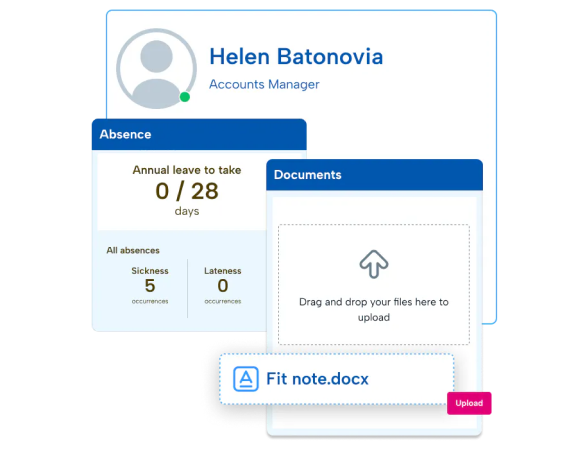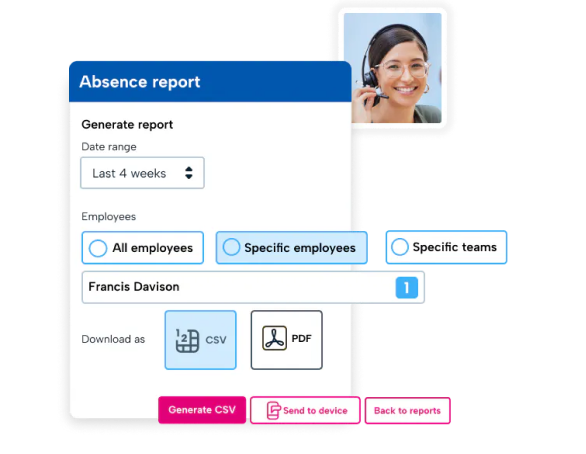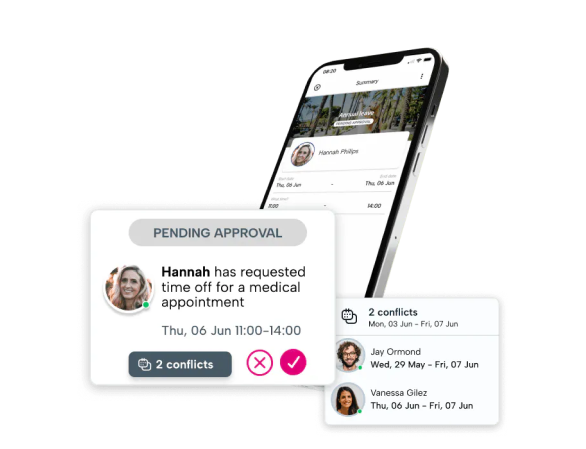Never be understaffed thanks to easy-to-use absence management software that gives you real-time notifications and resources for prolonged sick leave in real time.
Simplify staff absence management and lateness tracking
- Check who’s off instantly using the team calendar view
- Record and generate reports of absences by type
- Get instant appointment request notifications
- Fill vacant shifts quickly with our open shifts feature


Stay on top of absences & lateness
You can’t predict emergencies or illnesses. Doctor's visits, parental leave, or unexpected commuting delays—stay in control effortlessly.
- Track all absences in one spot, from sick days to other leaves.
- Upload documents for absence requests hassle-free.
- Never miss important dates with customizable notifications.
- Keep shifts covered in real-time with easy management updates.

Absence management made easy
You understand that everyone can get sick, and your staff needs time off to recover when they do. But managing employee attendance can become a real headache if you're still stuck with those clunky spreadsheets.
Modernize your attendance tracking with Peninsula’s smart software and:
- Track absence trends effortlessly with our reporting tool.
- Stay compliant with absence laws, mitigating HR risks.
- Monitor punctuality with secure attendance records.

Manage your team on the move
Our HR app makes absence management simple, no matter where you are. Whether you're dealing with an early morning call about a sick employee, arranging cover during lunch, or crunching attendance numbers in the evening, our app keeps you connected.
Use our smart app to:
- Allow employees to snap and upload proof of their absence requests.
- Quickly approve or decline absence requests as they come in.
- Release open shifts and instantly notify your staff.

See what else you can manage with Peninsula’s smart software
Carry your digital filing system in your pocket with limitless document storage. Upload, store, and access documents instantly.
Effortlessly create, assign, and adjust shifts and schedules for any work pattern. Introduce flexibility with our innovative open shifts feature.
Simplify staff management. Approve requests on the go, receive notifications about overlapping vacations, and view your team’s schedule in one place.
Get answers to all your HR and health & safety questions quickly.
Ensure the perfect hire every time. Track, store, organize, and manage applicants seamlessly from job openings to onboarding.










